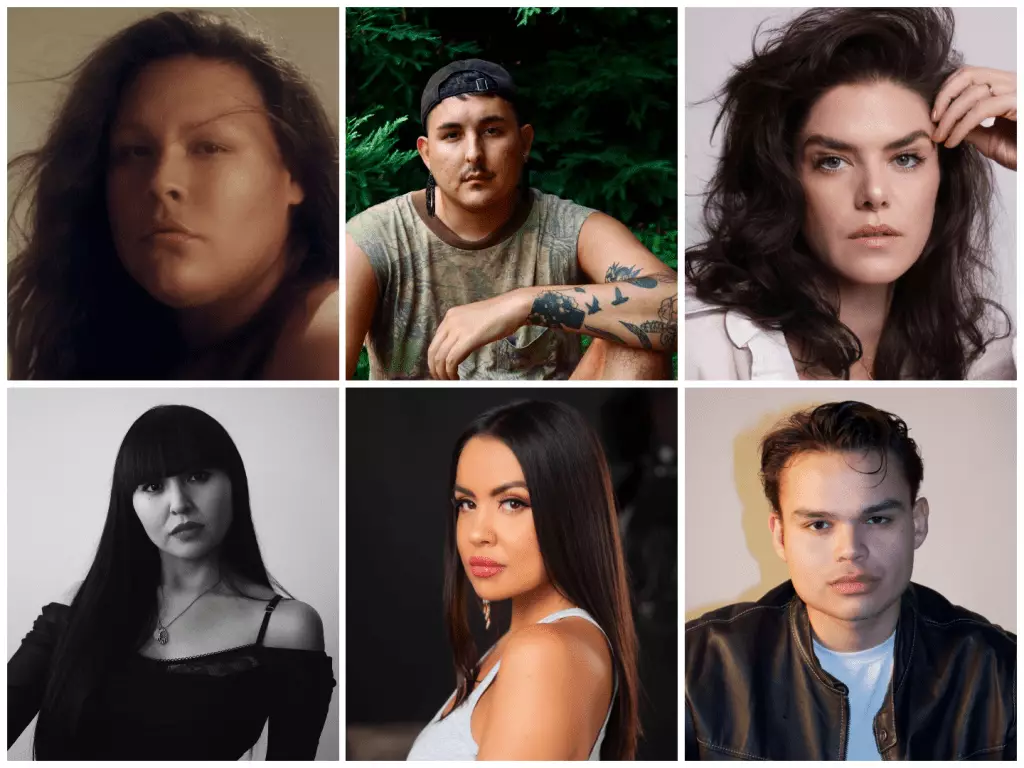In recent years, the film industry has seen a rise in stories that challenge the status quo, flipping the narrative on underrepresented communities. One of the most anticipated upcoming films set to make waves is “Seventeen,” the debut feature from filmmaker Justin Ducharme. This powerful movie centers on the lives of three Indigenous sex workers in Vancouver, offering a raw and unfiltered look at their experiences. Rooted in Ducharme’s personal journey, the film shines a light on themes of colonial impact, familial bonds, and the often-overlooked narratives of sexual sovereignty within Indigenous communities.
Ducharme, a Metis artist from St. Ambroise on Treaty 1 Territory, brings a unique authenticity to his storytelling. His involvement in the Clermont community and personal connection to the subject matter enable him to frame this film through a lens that is compellingly genuine. By sharing his experience as an Indigenous sex worker, Ducharme is breaking boundaries, providing viewers with an unflinching view of the intricacies involved in these intersecting lives.
Exceptional Casting Choices
The casting for “Seventeen” is nothing short of exuberant. It features a vibrant lineup of Indigenous actors, including the notable Nizhonniya Austin and Kaniehtiio Horn, who bring not only skill but also depth to their characters. This carefully curated ensemble reflects the dedication to authenticity that runs throughout the production. Acclaimed for tackling significant issues in their past roles, these actors are poised to capture the nuanced realities of their characters with sensitivity and gravitas.
With emerging star Aalayna in the mix, who is also known for her advocacy in human rights, the film harnesses an electrifying energy. The casting of actors who are not just performers but also cultural representatives speaks volumes about the project’s significance to Indigenous storytelling. In an industry often criticized for its tokenism and lack of genuine representation, “Seventeen” stands as an exemplar of a more thoughtful and inclusive approach.
Filmmaking with Purpose
The production of “Seventeen” has not only been about creating art but building community. Ducharme’s acknowledgment of the support from Urban Indigenous kin and sex workers demonstrates a commitment to ensuring that the voices behind the film remain connected to the culture it portrays. This collaborative spirit fosters a learning environment where cultural narratives are shared and respected, paving the way for authentic storytelling.
Moreover, the film has benefitted from esteemed partnerships with programs like the Sundance Institute’s Native Film Lab and TIFF’s Filmmaker Lab. Such backing underscores the increasing recognition of Indigenous talent within the industry and the importance of investment in stories that matter. By harnessing influences from established frameworks, Ducharme’s film seeks to resonate with wider audiences while holding true to its origins.
Challenges and Triumphs
Yet, the path to bringing “Seventeen” to life has not been devoid of challenges. The intersectionality of identity politics remains a focal point of discussion, particularly regarding the stigmas associated with sex work. By tackling these issues head-on, Ducharme’s film seeks to dismantle pervasive stereotypes and broaden societal understanding of Indigenous sex workers’ realities. This initiative is rooted in the belief that storytelling can foster empathy, open dialogue, and ultimately lead to social change.
As the production gears up, the anticipation surrounding “Seventeen” continues to build. The film is set to capture a spectrum of emotions while showcasing resilience and strength embodied within its characters. Ducharme’s vision is not merely to depict hardship, but to illuminate the connections that hold these women together, portraying a community that thrives in the face of adversity.
In sum, “Seventeen” represents more than just a film; it symbolizes a movement towards inclusivity, authenticity, and representation in the cinematic landscape. Through the power of storytelling, Ducharme aims to catalyze conversations, challenge entrenched narratives, and ultimately offer a celebration of Indigenous identity that demands to be seen and heard.
